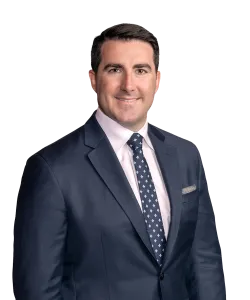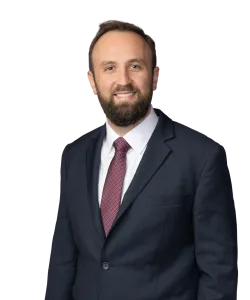Ninth Circuit Reverses Dismissal of FCA Suit
Headlines that Matter for Companies and Executives in Regulated Industries
Ninth Circuit Reverses Dismissal of FCA Suit
On Tuesday, the Ninth Circuit reversed the district court’s grant of Express Scripts’ motion to dismiss a whistleblower’s lawsuit accusing Express Scripts of defrauding the US Department of Defense of billions of dollars in unnecessary medications for military personnel. In its motion to dismiss, Express Scripts argued that the False Claims Act’s (FCA) public disclosure bar — which prevents whistleblowers from bringing FCA actions where the alleged fraud has already been publicly disclosed unless the whistleblower is an original source of the information — prohibited the lawsuit.
The district court agreed, finding that a December 2013 Army Times article and comments discussed in the Federal Register established that the public disclosure bar applied. Under controlling precedent, for the public disclosure bar to apply, among other things, the previously disclosed information must contain “facts from which fraud can be inferred” and the fraud disclosed publicly must be “substantially similar” to the fraud alleged in the qui tam action. The Ninth Circuit found that neither the Army Times article nor the Federal Register comments satisfied the requisite standard because they were vague and did not contain facts from which the fraud could be inferred. The Ninth Circuit reversed and remanded the case to the district court for further proceedings.
The Ninth Circuit’s opinion is here.
Fourth Circuit Finds Whistleblower’s Suit Can Move Forward
On Monday, the Fourth Circuit found that a whistleblower had sufficiently detailed allegations to defeat Acadia Healthcare’s motion to dismiss, reversing the lower court’s dismissal of the complaint. The whistleblower accuses Acadia of violating the FCA by submitting fraudulent bills to Medicaid and other federal health care programs. In particular, the whistleblower alleges that patients were not receiving the required therapy to treat their addictions and that Acadia fabricated notes for group-therapy sessions that never took place.
In its motion to dismiss, Acadia argued, among other things, that the company was entitled to bill for the same amount regardless of whether group-therapy was provided, and that the whistleblower failed to identify any false claims submitted to the government.
The district court agreed with Acadia and granted its motion to dismiss. The Fourth Circuit reversed, however, finding that the whistleblower adequately connected the dots, including by providing multiple, specific examples of false therapy notes that were used to falsify patient records and even identifying Acadia staff who created and signed the notes.
However, the Fourth Circuit’s reversal applies only to claims against Acadia’s clinics in North Carolina where the whistleblower’s claims were sufficiently detailed. The Fourth Circuit determined that the whistleblower’s allegations relating to facilities outside North Carolina were insufficient and did not allow the Court to infer that the allegedly falsified group-therapy notes were the result of a company-wide policy.
The Fourth Circuit’s opinion is here.
Supreme Court Lifts Stay, Allowing Retrial in Landmark Ciminelli Case
Prior to 2023, the Second Circuit recognized a federal fraud theory called “right to control,” under which a defendant could be convicted in a scheme to deprive a victim of potentially valuable economic information necessary to make discretionary economic decisions.
That changed when the US Supreme Court issued its opinion in Ciminelli v. United States, 598 US 306 (2023), also known as the “Buffalo Billion” bid-rigging case. In Ciminelli, the government obtained fraud convictions against the defendants after arguing that they defrauded a stated-funded entity responsible for awarding contracts by depriving it of “economically valuable information” that was necessary to make a discretionary economic decision, i.e., the awarding of contracts. 598 U.S. at 311. The Supreme Court unanimously reversed, finding that the “right to control” theory of fraud impermissibly expanded the scope of the federal fraud statutes. Id. at 314–15. The Court found that the government must prove that the defendants sought to deprive the victims of money or another tangible property interest — i.e., traditional property interests. Id. at 316. As a result, the deprivation of an intangible right to more accurate information was not sufficient. Id.
On remand, the Second Circuit vacated the wire fraud and conspiracy convictions and remanded for a new trial, giving the government the opportunity to retry the defendants with new evidence based on a traditional property theory of wire fraud. The defendants argued that to do so without evaluating the sufficiency of the evidence, among other things, violated the Double Jeopardy Clause.
Nearly two years after its initial decision, Ciminelli was back (temporarily) before the Supreme Court, with defendants arguing that the Second Circuit’s decision to allow the government to pursue a second trial under a different theory was erroneous.
On Monday, after initially granting a temporary stay in the matter, Justice Sonia Sotomayor vacated the stay and denied the defendants’ request to stay the Second Circuit’s ruling “in all respects.” The order thus paves the way for the government to pursue a second trial against the defendants under a different fraud theory.
The Supreme Court’s vacatur and denial of the application for a stay can be found here.
Contacts
- Related Industries
- Related Practices






